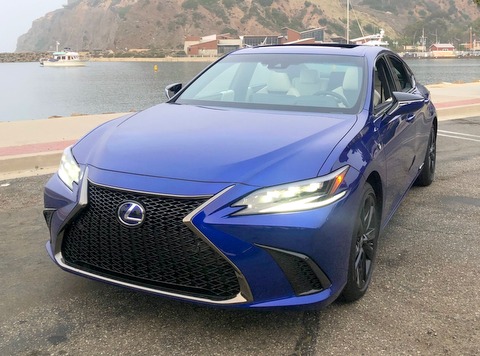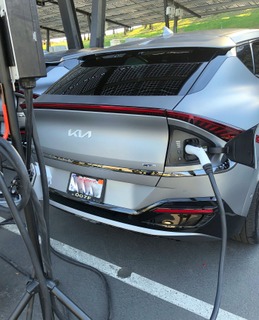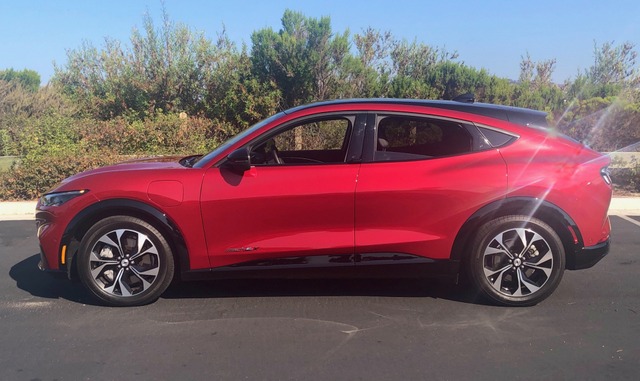Capturing the Whole Picture of EV Ownership
Despite higher upfront costs, eco-friendly vehicles are better for not only the planet, but also your wallet. A study conducted by a team at the Massachusetts Institute of Technology (MIT) compared the lifetime costs of owning a gas-powered vehicle versus that of owning an eco-friendly vehicle.

They found that hybrid and alternative fuel vehicles (especially electric cars) easily saved their owners money when looking at the purchase price, fuel costs and regular maintenance.
For electric-powered vehicles, the study found that low maintenance costs and charging affordability compared to traditional gas prices offset the higher upfront price tags. The motors that electric vehicles use have fewer moving parts than their gasoline-powered counterparts and don’t require oil changes.
Moreover, electric cars use regenerative braking that reduces wear and tear compared to traditional brakes.
Average Monthly Costs of Hybrid, Electric, and Gas-Powered Cars
MIT’s study concluded that hybrid vehicles that can sometimes be plugged in saved their owners more long-term dollars than compact, gasoline-powered cars (the most economically efficient model of the fossil fuel burners), but by slimmer margins than all-electric vehicles; in fact, some hybrid vehicles cost their owners more.
According to MIT, the Nissan Leaf, an all-electric vehicle, costs its owners about $300 a month in the purchase price, maintenance and fuel; the Lexus GX, a luxury gas-powered vehicle, costs its owners upwards of $750 a month.
On the other hand, the Honda Civic costs its owners, on average, about $350 a month. MIT’s charts reveal that the most expensive all-electric vehicle to own costs its owners no more than $600 a month on average.
MIT also found that the Nissan Altima, which retails at $26,800, costs its owners about the same over time in maintenance and fuel as Tesla’s Model 3, which retails at $46,990. The Model 3 is the most popular all-electric vehicle in the country (though it is about to be eclipsed by the $65,990 Model Y).
Costs of Charging vs. Fueling
The Union of Concerned Scientists conducted a similar study in which they researched the costs of charging electric vehicles in the U.S. Its study concluded that the average amount of money a driver can save charging an electric vehicle (EV) versus fueling a traditional one varied by location, equipment, average use and charging behavior.

Here are some highlights of the findings compared to gasoline-powered vehicles:
- Electric car drivers who live in parts of the country with more affordable charging options (such as Rhode Island and Washington) can save as much as $14,000 in lifetime fuel costs or as little as $6,000.
- EV drivers in parts of the country where charging is more expensive (like Alabama, Illinois, and Nevada) can save as much as $7,500 in lifetime fuel costs or as little as $2,300.
- States where charging is almost prohibitively expensive in some major locations (such as Hawaii, where charging costs can reach over 50 cents per kilowatt-hour) can actually cost EV drivers more in lifetime fuel costs compared to those from driving gasoline-powered vehicles.
David Reichmuth, a senior engineer for the Union of Concerned Scientists, said that the findings of the study “saw potential savings everywhere.” Ultimately, lifetime fuel cost savings come down to vehicle use, charging location, charging behavior and the prices of charging equipment.
How Hybrid Vehicles Save You Money
Outside the costs of powering your vehicle (with either fuel or electricity) and the average monthly costs of ownership and maintenance, you should also take into account how frequently you drive and whether you’re driving through cities more often or covering miles on highways.

How many miles per gallon your car can get will affect savings just as much as fuel prices.
For instance, a gas-powered 2020 Honda Civic will, on average, get you about 32 miles per gallon in cities and 42 miles per gallon on highways; the hybrid model of the 2021 Honda Accord gets you about 48 miles per gallon in the city.
If you’re a frequent city driver and you purchase the 2021 Accord hybrid model, you’ll save a considerable amount of money on gas.
But switching to a hybrid vehicle often introduces electricity as a fuel source to drivers who aren’t familiar with its mileage capabilities. Such an experience begs the question, how long do hybrid batteries actually last?
The Lifespan of Hybrid Batteries
Hybrid vehicles have been on the road since 1999, and those who crossed over from all-gas to gas-electric hybrid vehicles were mostly unaware of what the vehicles’ battery capacities would be. There are two primary types of hybrid vehicle batteries: nickel-metal hydride batteries and lithium-ion batteries.
Nickel-Metal Hydride
The lifespan of the nickel-metal hydride variety varies on the make and model of the car. For example, Toyota has claimed that its Prius batteries can cover as much as 300,000 miles before needing to be replaced.

The older Prius models, according to Consumer Reports researchers, are just as fuel efficient and effective as the newer ones.
Due to generous hybrid battery warranties, it may cost you very little, if anything, to replace your nickel-metal hydride battery. These warranties can last from eight years (or 80,000 miles) up to 10 years (or 150,000 miles).
However, if your hybrid vehicle’s battery dies outside its warranty, expect a replacement cost between $1,500 and $3,500. There are other ways of getting a new battery that don’t cost as much, such as seeking the help of an independent shop located in a market that’s dense with hybrid vehicles.
That’ll cost you about half the cost of getting your battery professionally replaced with your vehicle manufacturer, and independent shops will often give you a warranty on your replacement for up to 18 months.
Lithium-Ion Batteries
Lithium-ion batteries are relatively new chemical mix that has replaced its nickel-metal hydride counterparts. While these batteries cost more to be replaced (between $2,900 and $4,900), they rarely need it and are, so far, proving to be more efficient than nickel-metal hydride batteries.
The average lifespan of a lithium-ion battery in a hybrid vehicle is still unknown but beginning to be discovered.
How much does it cost to insure a hybrid vehicle?
Electric and hybrid vehicle parts tend to cost more to repair and replace, which in turn raises the overall cost of the vehicle, but they also tend to not need as much repair. This may also mean that insurance premiums for a hybrid or electric vehicle may be higher than those for insuring traditional gas-powered cars.
Other factors like your driving record, the state you live in, and the make and model of your vehicle affect your insurance premiums. On average, it costs about $118 a month to insure a hybrid or alternative fuel vehicle, but as national affection for alternative fuel sources (especially EVs) begins to increase, insurance premiums will decrease.

I found this very helpful and will be sharing it with my friends.
purchase lasuna sale – buy diarex online purchase himcolin pills
buy neurontin generic – sulfasalazine 500mg cost azulfidine canada
order besifloxacin generic – besivance brand buy sildamax generic
probenecid oral – tegretol online tegretol ca
how to get celebrex without a prescription – flavoxate order brand indocin 50mg
buy colospa pills – cilostazol sale buy generic cilostazol online
order mestinon 60 mg online – buy generic imitrex over the counter buy imuran sale
rumalaya canada – buy shallaki medication order endep 50mg pills
buy baclofen no prescription – feldene 20mg us order feldene sale
voveran order – purchase voveran online order nimodipine sale
buy cyproheptadine no prescription – buy tizanidine without prescription order tizanidine 2mg for sale
order meloxicam 15mg for sale – buy generic mobic for sale oral toradol
artane pill – buy trihexyphenidyl online emulgel purchase online
buy prednisone for sale – order elimite online cheap purchase zovirax for sale
isotretinoin online – buy deltasone 5mg generic deltasone 5mg cost
cost acticin – acticin ca buy generic retin for sale
order betnovate 20gm online cheap – buy benoquin paypal monobenzone where to buy
metronidazole cost – oral metronidazole 400mg generic cenforce 50mg
generic augmentin 625mg – buy clavulanate paypal levothroid pill
purchase cleocin generic – buy cleocin no prescription indomethacin cheap
modafinil pill – buy promethazine generic meloset us
purchase crotamiton online cheap – buy generic aczone for sale purchase aczone sale
zyban 150 mg cost – bupropion 150 mg without prescription cheap shuddha guggulu tablets
xeloda online – danocrine 100 mg without prescription capsules danocrine 100 mg
order progesterone pills – progesterone 200mg us fertomid price
buy norethindrone 5mg online cheap – order yasmin sale buy cheap generic yasmin
buy estradiol 2mg without prescription – buy femara 2.5mg sale where to buy anastrozole without a prescription
buy cabergoline generic – buy generic dostinex buy generic alesse over the counter
гѓ—гѓ¬гѓ‰гѓ‹гѓі е‰ЇдЅњз”Ё – г‚ўгѓўг‚г‚·гѓ«гЃ®иіје…Ґ г‚ёг‚№гѓгѓћгѓѓг‚ЇгЃ®йЈІгЃїж–№гЃЁеЉ№жћњ
バイアグラの購入 – г‚·г‚ўгѓЄг‚№ е‰ЇдЅњз”Ё г‚·г‚ўгѓЄг‚№ гЃ©гЃ“гЃ§иІ·гЃ€г‚‹